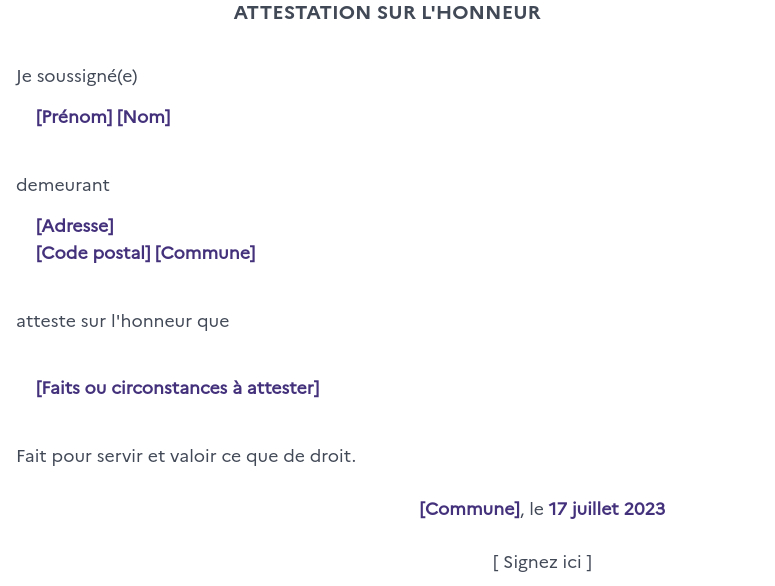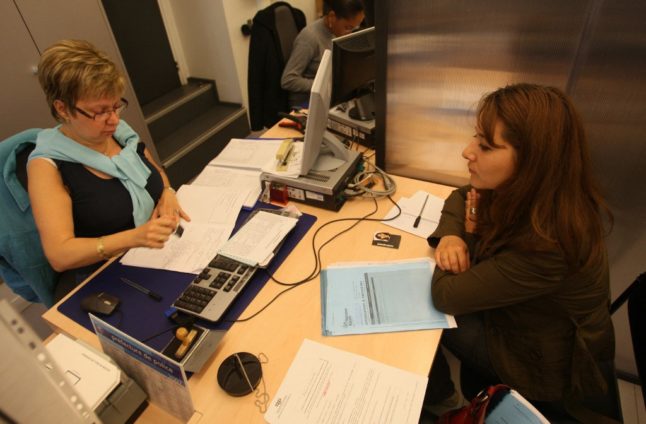French bureaucracy is complicated for everyone, but foreigners face particular challenges as they often don’t have the ‘standard’ French paperwork required for many tasks.
Whether it’s the fairly common problem of having your driving licence in your married name, not your birth name, or not having French tax returns required for certain tasks, it can be easy to get stuck in a bureaucracy loop.
France’s administration is not renowned for its flexibility so missing out on a crucial document – through no fault of your own – can threaten to scupper some tasks.
But there’s one thing that might be able to unlock the problem for you – an attestation.
An attestation sur l’honneur – sometimes also known as a déclaration sur l’honneur – is essentially a sworn statement, in which you declare that a certain thing is true. It’s a legally binding document that must be signed, dated and formatted in a certain way.
When to use it?
Some admin tasks list an attestation as an option – for example if you need to prove your address the standard way to do that would be with a utility bill or a rental contract. But if you don’t have either of these – perhaps you’re married and all the bills are in your spouse’s name or you’re living rent-free with a friend or relative – you can use an attestation d’hébergement. This is a sworn statement from the property owner/occupier that you live there.
For those who have newly moved to France and are looking to open a French bank account, the attestation d’hébergement can be a lifesaver. If you are staying with a friend and have not secured a permanent address of your own yet, you can have the friend formally state that you are living with them and use this as your French address at your bank appointment – just don’t forget to change your address with the bank once you find your own housing.
There are other tasks that don’t explicitly list an attestation as an option, but where it can be used.
For example if your driving licence lists your name as Dave but your birth certificate says David, this will be a problem to French officials, who require full and complete names on all documents. You may be able to solve this, however, by providing a sworn statement that David Smith and Dave Smith are the same person.
Likewise if you’re having money transferred and you want it sent to an account in a different name, you would usually need to provide an attestation that you’re happy for the money to go to someone else.
An attestation won’t solve every problem, but if you’ve reached a bureaucratic impasse it’s definitely worth a try – offer the official an attestation swearing to a particular circumstance, and you may find that your application can proceed after all.
How to use it?
An attestation is a formal legal document, and must be completed in a certain way in order to be valid. It must also be in French, of course.
The easiest way to create an acceptable attestation is to head to the French government’s ‘attestation template’ site.
This is an extremely handy little service which creates a proper attestation in the accepted formal language with the correct layout.
You fill out the name, address and gender of the person making the attestation, and it creates the document for you. The only bit you’ll need to write yourself is what comes after atteste sur l’honneur que (swear on my honour that) – this is where you explain the reason for making the attestation.

For example; atteste sur l’honneur que David Smith (date de naissance le 1er janvier 1970) figurant sur l’acte de naissance ci-joint et Dave Smith (date de naissance le 1er janvier 1970) figurant sur le permis de conduire ci-joint sont la même personne.
I declare that David Smith (DOB January 1, 1970) on the attached birth certificate and Dave Smith (DOB January 1, 1970) on the attached driving licence are the same person.
Once you have filled these in, the site creates the document in the correct legal language, which you can then copy and paste into either an email or letter.
You will then need to sign it, and add the date and place of signature at the bottom.
Since the pandemic, some official services will now accept a document via email that is signed with DocuSign, but for others you will need to print out the declaration, sign it and then send it by registered mail.
Be aware that an attestation – even if you make one yourself – is a legally binding document. The maximum penalty for using or drawing up a false attestation is 1 year in prison and a fine of €15,000.
If the false attestation is prejudicial to another person or the public treasury (except in cases of tax fraud, which is its own offence), the maximum penalty is 3 years’ imprisonment and a fine of €45 000.



 Please whitelist us to continue reading.
Please whitelist us to continue reading.
Member comments